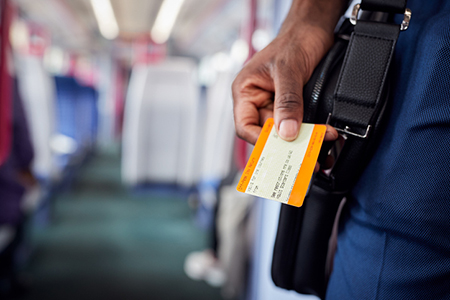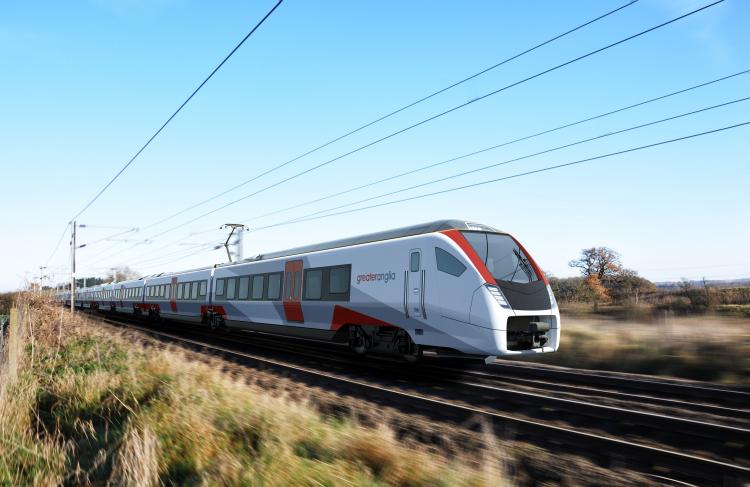Best of both: the country needs the public and private sectors working together better after the pandemic
By Andy Bagnall, Director General, Rail Delivery Group
 It’s easy, on a cold February morning in lockdown, to focus on where we are now. The drumbeat of news alerts, texts and WhatsApp messages on our phones throughout the day intertwined with video calls and virtual meetings. In rail, for our colleagues on the front line, it’s less virtual: keeping key workers moving but with much less hustle and bustle than there used to be.
It’s easy, on a cold February morning in lockdown, to focus on where we are now. The drumbeat of news alerts, texts and WhatsApp messages on our phones throughout the day intertwined with video calls and virtual meetings. In rail, for our colleagues on the front line, it’s less virtual: keeping key workers moving but with much less hustle and bustle than there used to be.
It can be hard to be optimistic in these times, but I am. I encourage you to be too. There will be life after Coronavirus and it will be better. The railway can have a huge role to play, working in partnership with other sectors.
Like many industries over the last 12 months, rail has adopted new ways of working – but still we keep the country connected. The railway has been taking doctors, nurses and other key workers on their journeys to and from work while also moving tonnes of supermarket goods so that shelves remain stacked.
Looking beyond the pandemic, it is clear to me that we must build on what we have and go forward, not back. The railway thinks in years and decades, not weeks and months, and I have every confidence that passengers will return. It will take time and the patterns of travel will be different, but if we make the right decisions now, the railway will once again grow – just as it did after previous pandemics and world wars.
Before this crisis, rail companies eagerly awaited the outcomes of the Williams review and the government’s white paper about reform of the railway. Coronavirus has not dampened that desire to do things differently. If anything, the pandemic has brought into sharper focus the need to ensure that reform of the railway delivers for Britain.
It’s easy for some to search for simple ideas from the past, like changing ownership. When we submitted our proposals for reform, we focused on what mattered to people: how to make travelling by train better by being more customer focused, more joined up and more accountable. That’s why we called for the franchising system to be replaced with new private sector contracts built around the needs of different customers and a new public arm’s length body to join up the system, all underpinned by reform to make fares easier.
These changes would see the railway building on the positives of recent years and addressing the shortcomings of the existing system. Private sector and public sector working together more effectively to create a railway that is better for customers, communities and the country.
 With both sectors working together in a new, more effective partnership, we can upgrade the railway more efficiently. We can speed up the introduction of thousands of new carriages, backed by private sector funding. We can improve customer service so that we have some of the most satisfied customers of any major European railway. With the right decisions about regulation by the public sector, we can make choosing and buying fares easier so that more and more people can find a good deal and take the train – good for them to get where they want to go but also better for the environment than travelling by car, for example.
With both sectors working together in a new, more effective partnership, we can upgrade the railway more efficiently. We can speed up the introduction of thousands of new carriages, backed by private sector funding. We can improve customer service so that we have some of the most satisfied customers of any major European railway. With the right decisions about regulation by the public sector, we can make choosing and buying fares easier so that more and more people can find a good deal and take the train – good for them to get where they want to go but also better for the environment than travelling by car, for example.
We can build back better, both as a railway and as a country. To do that, we need to keep the best of both sectors, within a new rail system - an evolved partnership between public and private.
This is the most certain way to deliver the future we need. A better-connected Britain, where green rail journeys can be easily made on a network that supports businesses and job creation in every corner of the country. If we get the right reforms, the railway will recover, helping the country to recover. There is a lot to be optimistic about.